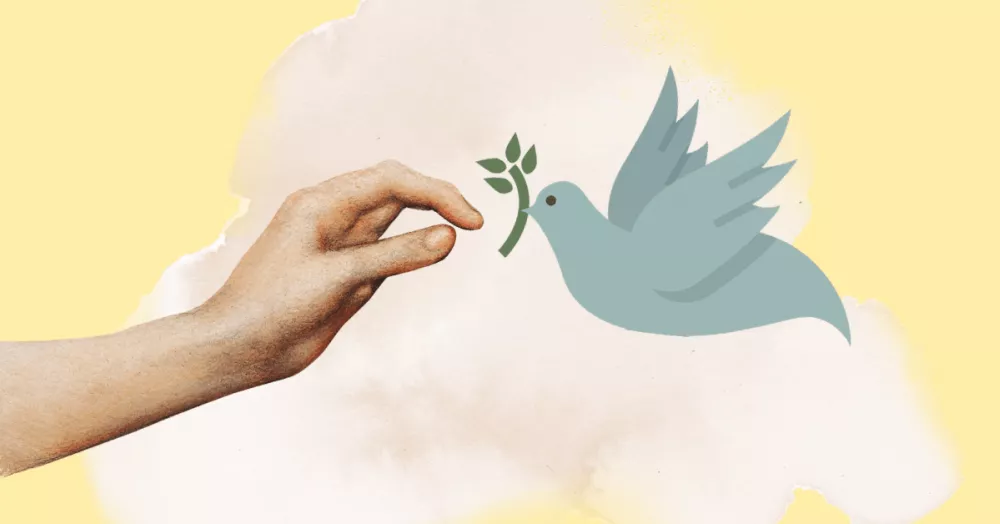Unforgiveness - And How to (Finally) Let it Go
Forgiving others, let alone ourselves, is not easy. But it is worth it. Read on to discover the power of forgiveness and how it can make us better.

R.T. Kendall’s Total Forgiveness
In the video below, RT Kendell talks about Total Forgiveness. Even if you are not religious, take a moment to listen to him.
What is Self-Forgiveness?
The 4 Rs of Forgiveness
Unforgiveness
Consequences of Unforgiveness
Unforgiveness is an open wound. It paralyzes us (or a part of our body), and restricts us from realizing our full potential. Just like untreated wounds, unforgiveness festers, becomes deeper, and makes it impossible to think about anything else. It colors our judgments and life choices. When severe, it also causes other psychological problems:
Impulsive Behaviour
Pain is a primal part of our survival instincts. When we are in pain (remember, our subconscious cannot differentiate between physical and emotional pain), our survival instincts are activated. When a triggering event occurs, we respond instinctively and often in a negative way. It triggers behavior that is completely unlike us.
Negative Thoughts
Unforgiveness shuts the door of positive feelings as negative thoughts conquer our minds. When survival instincts have kicked in, our animal brain is always looking for possible danger, thinking of the worst possible outcome in any situation. These bitter thoughts come in the way of forgiveness. Studies show that when we are unable to forgive and forget, our minds deteriorate faster, leading to mood swings and poor mental health.
Lack of Satisfaction
When we are struggling with big issues internally, nothing seems good enough. No matter what others do for us or what feats we achieve, the world seems lackluster. All good things are not good enough, things we’ve always wanted to not give us the satisfaction we were craving, and when things go our way, we are suspicious of our good fortune. Feelings of unforgiveness have a way to affect many areas of our lives.
Anxiety/Stress
When someone wrongs us, the first thing we do is to stop talking to them. Followed by blaming them. When we are unable to talk to them, we bottle up the rage, betrayal, and frustration which leads to anxiety and stress. Constantly ruminating on past events keeps us trapped in the cycle of distress.
Health Issues
Our negative feelings tend to manifest as physical ailments. When we bottle things up, we often find ourselves afflicted with chronic conditions that have no real cause or cure. We then spend a lifetime taking drugs to alleviate our pain. We are not against allopathy, but many chronic illnesses have emotional beginnings.
Affects Relationships
At times, the recipient of our inevitable anger is a different person than the one causing pain. Unforgiveness not only causes severe damages to the strained relationship but also causes conflicts with existing relationships. When we are unable to forgive others, our trust in humanity is on shaky ground. We become jaded and don't expect much from other relationships, expecting to be hurt and disappointed in them.
Sleep Deprivation
A recent study shows that there is a direct relationship between forgiveness and the quality of sleep. When our hearts are heavy and stricken, we find it harder to relax. Our survival instincts are in hyperdrive, producing cortisol, keeping us awake and aware of possible danger. We starve ourselves of sleep, a time when our body repairs itself. When we are sleep-deprived, we can survive, sure. But we cannot thrive.
Power of Forgiveness
Forgiveness is a powerful drug. It can heal us in surprising ways and make our lives easier to live. A Harvard study describes forgiveness as one of the eight potent positive emotions. Imagine that. When we are able to radically forgive someone, we can take control of our lives and move on to the important things we’ve always wanted to do. Forgiveness can heal many chronic conditions, disappear acne, reduce stress and anxiety, and give us another chance at life. Forgiveness, especially forgiving ourselves, is powerful. Once you experience the freedom that comes from it, it is impossible to turn back.
Why is Forgiveness Important?
Forgiveness does not occur overnight for most of us, it is an ongoing process, something we do every single day of our lives till it feels natural and acceptable. It is easy to quit on the journey of forgiveness because on most days, it's hard to quit being ourselves. It is hard to override our survival instincts.
Everett L. Worthington Jr, a renowned psychologist who has dedicated his career studying this subject has found forgiveness to have tremendous social and health benefits.
It is a process of ignoring suffering and finding a positive mindset. Forgiveness promotes mental and physical wellbeing.
In a nutshell, we should consider forgiving ourselves and others because of these benefits:
- Well-Being
- Self-Confidence
- Self-Compassion
- Hope
- Mental Growth
- Better Sleep Cycle
- Mindfulness
Also, forgiving can improve our health. It can alleviate:
- High blood pressure
- Anxiety
- Stress
- Anger
- Heart Problems
Books on Forgiveness:
If you want to start on the journey of forgiveness, and seeking professional help seems like a really big step, then we recommend reading some of the books below.
- No future without forgiveness - by Desmond Tutu. A must-read inspirational book with some inspiring stories.
- Radical forgiveness Colin Tipping - Colin Tippin. This book teaches us to learn from our past experiences. This book comes with worksheets that assist in working on specific personal issues.
- Wings of Forgiveness - Kyle Gary. Another exceptionally well-written book, it consists of many stories that help its audience to understand the basics of forgiveness better.
- Forgiveness - Iyanla Vanzant. This book is easy to read and understand, also it consists of a 21-days practicing program that one must follow for better results.
- Forgiveness: Finding peace through letting go - Adam Hamilton. This book takes you through the spiritual path and portrays forgiveness from a biblical perspective. Yet another book, encouraging a practical approach rather than just theoretical.
We hope you found this article on forgiveness helpful. We would love to hear your thoughts on forgiveness in the comments.








Comments
A mandatory article to read for people like me who struggles to let go, thank you so much
It didn’t knew there are health benefits if we forgive someone. That was shocking.